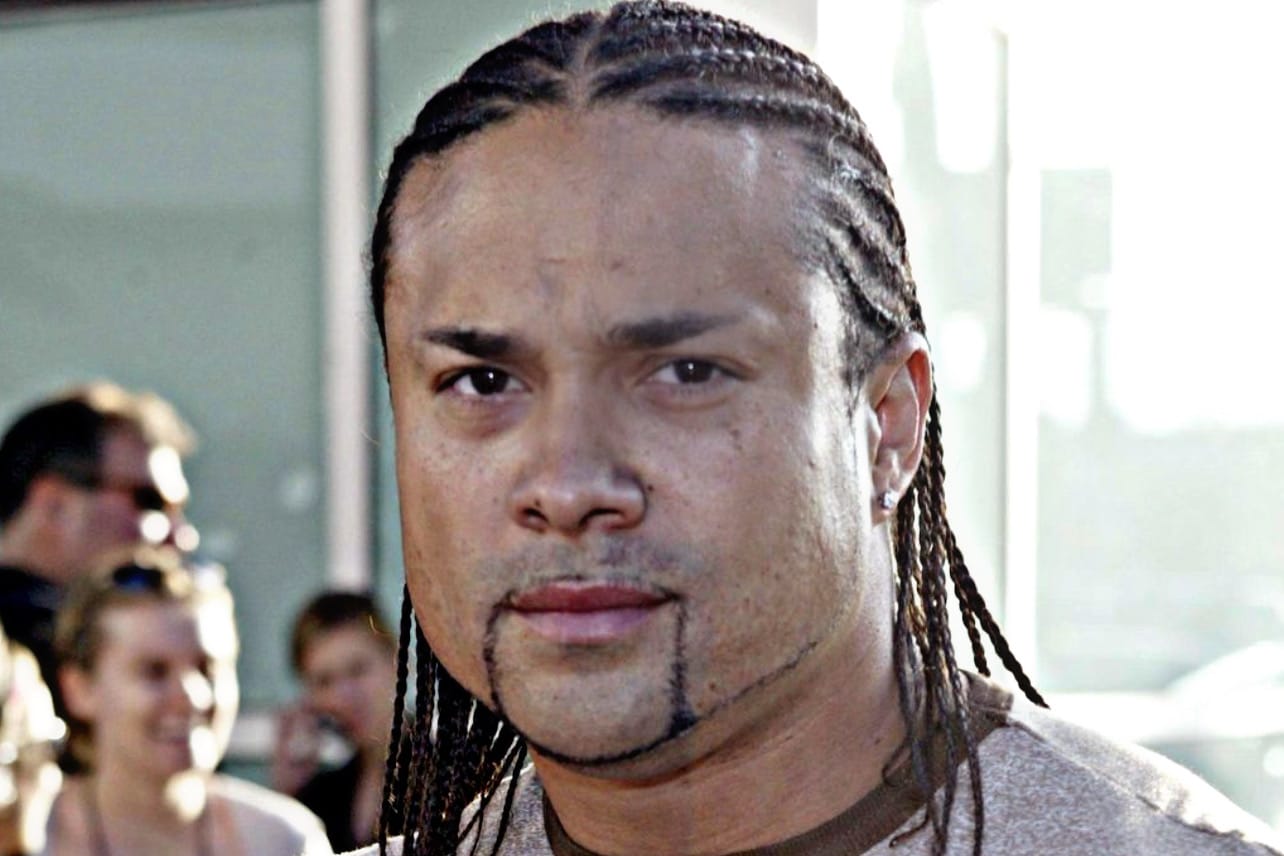Who Is Chino XL? The Late Rapper Dissed by Tupac on ‘Hit Em Up’

A Comprehensive Biography of the Influential Rapper Chino XL
Chino XL, born Derek Emmanuel Barbosa, was a prominent figure in the hip-hop community known for his intricate lyricism and formidable punchlines.
Emerging from the vibrant early ‘90s rap scene, his poignant commentary and remarkable storytelling set him apart as a unique voice in the genre.
Despite facing numerous challenges throughout his life, Chino XL’s contributions to rap endure, shaping the landscape for future artists.
This biography explores his early life, rise to fame, career highlights, personal struggles, and the controversies that defined his legacy.
Early Life
Derek Emmanuel Barbosa was born on April 8, 1974, in New York City. He was raised in a multicultural environment, with a Puerto Rican father and a Mexican mother, which profoundly influenced his worldview and artistic expression.
Chino XL’s early years were marked by the struggles of urban life. His family relocated to Los Angeles, California, when he was still young. In Los Angeles, he was introduced to hip-hop culture, which began to shape his identity.
Chino’s knack for wordplay became evident in his teenage years as he wrote poetry and crafted his first raps.
It was during this time that he adopted the stage name Chino XL, inspired by a mix of his heritage and a desire to embody the essence of an influential artist.
Before Fame
Before achieving national recognition, Chino XL honed his skills in the underground hip-hop scene.
He found his footing by participating in local rap battles and performances, often impressing audiences with his complex rhyme schemes and formidable stage presence.
He collaborated with several underground artists and producers, gradually making a name for himself.
In 1994, Chino XL released his first single, “Burnin‘,” which showcased his rapid-fire delivery and distinctive style.
The single garnered attention, and Chino began to attract interest from major record labels. Despite his early success, he faced challenges that tested his resolve as an emerging artist.
Career
Chino XL’s career took off in the late 1990s after signing with the legendary record label, and he released his debut album, “Here to Save You All,” in 1996.
The album featured thought-provoking tracks and ignited a passion among hip-hop fans, marking Chino as one of the era’s most promising lyricists.
His intricate wordplay, sharp metaphors, and diverse themes resonated with listeners and distinguished him in a crowded field.
The album included standout tracks like “No Mercy” and “I Don’t Care,” reflecting his socio-political consciousness and personal battles.
The lyrics showcased Chino XL’s prowess as a storyteller, addressing themes such as identity, race, and resilience.
Following the success of his debut, Chino continued to release music throughout the late ‘90s and early 2000s.
His sophomore album, “Poetica,” dropped in 2001 and expanded his thematic range, exploring deeper narratives and emotional landscapes. The album received critical acclaim, cementing Chino’s status as a lyrical heavyweight in the rap game.
Personal Life
Despite his success, Chino XL faced numerous personal challenges. He was open about his struggles with mental health and the impact of growing up in a tumultuous environment.
He navigated the pressures of fame while raising his children, often referring to himself as a “girl dad” and emphasizing his commitment to his family.
Derek Barbosa had two daughters, Chynna and Bella, whom he cherished and described as his greatest achievements.
In interviews, he expressed a desire to be a positive role model for them, instilling values of strength, resilience, and authenticity.
Legal Troubles
Chino’s life was not without legal challenges. He faced various legal issues throughout his career, including disputes with record labels and allegations that arose from his public persona.
While these legal troubles may have created obstacles, Chino continued to focus on his music and the message he wanted to convey through it.
In 2004, Chino XL was involved in a lawsuit related to album release rights, which delayed his subsequent projects.
Such legal battles often take a toll on artists, and Chino’s experience was no exception; he would later reflect on these challenges as pivotal moments that shaped his approach to the music industry.
Beef with Tupac
One of the most controversial aspects of Chino XL’s career was his feud with Tupac Shakur, one of hip-hop’s most iconic figures. The rivalry began in the mid-1990s, culminating in Chino’s famous diss track “Rising Sun.”
The track featured Chino’s sharp-witted lyrics aimed at Tupac, and while it generated buzz in the hip-hop community, it also added a significant layer of tension to Chino’s reputation.
The feud was intensified by Tupac’s own status and the media’s fascination with the East Coast-West Coast rivalry, as it drew considerable public attention.
Although Chino’s attacks were sharp and provocative, both artists’ discourses reflected broader tensions within the hip-hop community of the era.
Tragically, Tupac was murdered in a drive-by shooting on September 7, 1996, only three months after the release of “Rising Sun.” This left a perplexing legacy for Chino XL, as he was often cited in discussions about the rivalry despite Tupac’s untimely death.
Controversy
Chino XL’s career was also marked by several controversies that stirred both admiration and criticism. His lyrics often pushed the boundaries of social norms, addressing taboo subjects with unfiltered honesty.
One of the most notable instances occurred with the release of “No Complex,” where a bold line was censored by his record label due to its provocative nature, which dealt with political commentary and social issues.
Critics argued that his fearlessness endeared him to many but also alienated potential fans who found his approach too extreme.
His confrontational style and willingness to critique not only other artists but societal issues garnered a dual following: dedicated fans who praised his artistry and detractors who considered his methods excessive.
Despite this, Chino remained unapologetic about his artistic choices, often stating that he’d rather provoke thought than conform to industry standards.
Evolution and Later Work
In the years following the turbulence of the East Coast-West Coast rivalry and the loss of Tupac, Chino XL continued to evolve as an artist.
He released multiple albums and collaborated with a variety of hip-hop legends, expanding his reach and solidifying his place in hip-hop history.
Albums like “Poison Pen” (2006) and “RICANstruction: The Black Rosary” (2012) showcased his evolution, revealing a mature artist willing to explore more profound themes while maintaining his signature wordplay.
Chino was also an advocate for independent artistry. He increasingly sought to control his projects, paving the way for future independent artists in the industry.
His work ethic and creativity paid off, with standout tracks and collaborations with names like Immortal Technique and Tech N9ne further broadening his appeal.
Legacy and Influence
Chino XL’s contributions to hip-hop extend beyond his own music. He is often regarded as an influencer and mentor for a new generation of rappers who value lyricism and storytelling.
His intricate rhyme patterns and thought-provoking lyrics paved the way for artists such as J. Cole, Kendrick Lamar, and Rapsody, who share his commitment to substance over superficiality in their own work.
The legacy he leaves behind continues to inspire aspiring rappers and fans alike.
Moreover, Chino XL’s embrace of cultural pride is notable. His mixed heritage informed much of his songwriting, and he openly discussed issues related to race and identity in his music.
He emphasized the importance of representation in hip-hop, encouraging artists of color to embrace their backgrounds and tell their stories.
This advocacy for cultural awareness and pride resonates in today’s diverse rap landscape, where artists explore their identities and experiences more than ever.
Chino XL’s legacy is one of complexity, artistry, and resilience. From his early life in New York to becoming a notable figure in the rap scene, his influence remains significant even after his untimely passing.
His willingness to engage in controversy, alongside his rich lyrical style and narratives, paved the way for artists who emulate his boldness today.
As a talented lyricist whose career spanned several decades, Chino XL gave a voice to countless individuals through his artistry.
His impact on hip-hop culture and his dedication to self-expression continue to resonate within the community, reminding us that music can provoke thought, inspire change, and connect us—all hallmarks of his storied career in the annals of rap history.
Chino XL, who passed away at the age of 50 on July 28, 2024, will be remembered not just for his lyrical prowess but also for his fierce authenticity and the indelible mark he left on the rap genre.
The rich tapestry of his life and work serves as a testament to the power of lyrical art and the enduring spirit of hip-hop.
As Chino XL’s legacy continues to inspire, his contributions affirm that true artistry transcends time, leaving behind a lasting influence that will be felt for generations to come.

